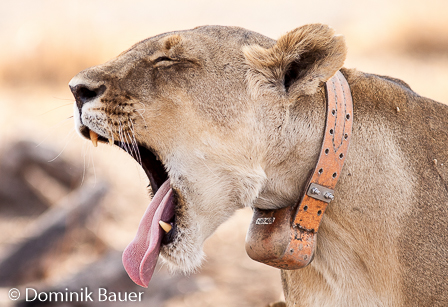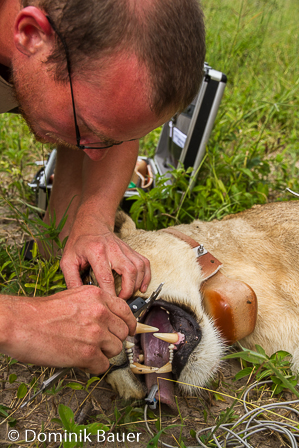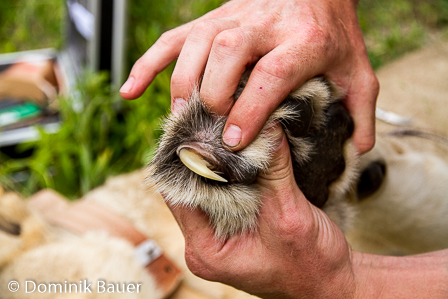Research
Lion Ecology
Lions and The Trans Kalahari Predator Programme
History and Milestones
Cecil the Lion & WildCRU’s Cecil Summit
Area of Operation
Lion Ecology
Monitoring Populations
Transboundary and Landscape Conservation
Human-Lion Coexistence
Research Methods
The Team
Sponsors & How to Support Us
References
Ecologists face the complicated task of understanding the interwoven relationships of key aspects of ecosystem processes. The more comprehensive our knowledge of these relationships, the better we are equipped to conserve ecosystems. Since 1999, we have therefore focussed on understanding the fundamental ecology of African lions as an important apex predator of many African ecosystems. For this purpose, the life histories of over 50 prides and over 40 male coalitions in and around Hwange National Park in Zimbabwe have been monitored over nearly 20 years. We have built up an extensive ID database for lions in western Zimbabwe and north-eastern Botswana, which includes over 1,200 individually identified animals. Besides spatial movement as well as social behaviour and pride demographics, we studied lion-prey relationships and intra-guild competition with other large carnivores. A main focus of our work has been on the human impact on population dynamics and the impact of trophy hunting on lion populations and the conservation of the species. The world famous lion called Cecil was one of many individuals we have monitored and which help us piece together all the different parts of the puzzle of human-lion coexistence. The results of our ongoing ecological research have led to a better understanding of the processes that shape the natural world we live in and have guided decision making on various wildlife management topics throughout the years.








